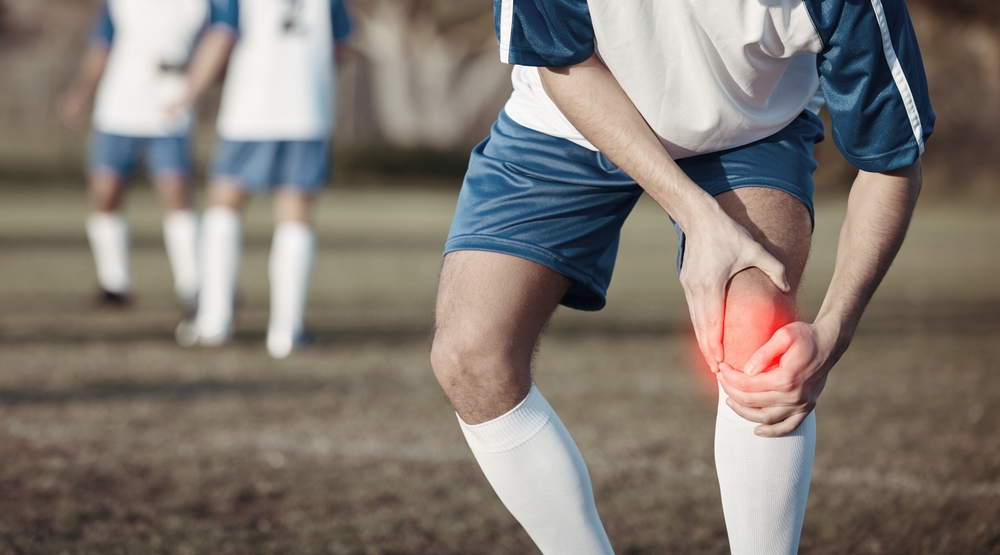Your knee is more than just a hinge; it’s a powerful, complex joint that depends on a delicate balance of ligaments, tendons, cartilage, and muscles to function smoothly. At the heart of this structure are the four main knee ligaments—the ACL, PCL, MCL, and LCL. These ligaments work together to provide stability and strength, allowing you to walk, run, pivot, and jump.
But when a knee ligament is injured, everyday movements can become painful, difficult, or even impossible.
At Iowa Ortho, our orthopedic specialists treat a wide range of knee ligament injuries, offering expert diagnosis, non-surgical care, and advanced surgical solutions to help patients return to the activities they love.
The Knee’s Four Main Ligaments
Each of the four ligaments plays a distinct role in stabilizing the knee:
1. Anterior Cruciate Ligament (ACL)
The ACL runs diagonally through the center of the knee, connecting the femur (thighbone) to the tibia (shinbone). It prevents the tibia from sliding too far forward and provides rotational stability.
- Common injuries: Sudden stops, pivots, or awkward landings—especially in sports like basketball, soccer, and football
- Symptoms: A “pop” sound, swelling, instability, and difficulty bearing weight
- Treatment: Often requires surgical reconstruction, especially for active individuals
2. Posterior Cruciate Ligament (PCL)
The PCL also connects the femur to the tibia but runs behind the ACL. It prevents the tibia from sliding backward under the femur.
- Common injuries: Direct blow to the front of the knee (e.g., car accidents or falls)
- Symptoms: Pain behind the knee, swelling, and instability when walking downhill
- Treatment: Many mild cases are treated non-surgically; complete tears may require reconstruction
3. Medial Collateral Ligament (MCL)
The MCL is located on the inner side of the knee and connects the femur to the tibia. It resists forces that push the knee inward.
- Common injuries: Contact sports injuries (like a blow to the outer knee), skiing accidents
- Symptoms: Pain and swelling in the inner knee, stiffness, and limited motion
- Treatment: Most MCL injuries are treated without surgery using bracing and physical therapy
4. Lateral Collateral Ligament (LCL)
The LCL runs along the outer side of the knee and connects the femur to the fibula. It provides stability against forces that push the knee outward.
- Common injuries: Direct blow to the inside of the knee, twisting motions
- Symptoms: Outer knee pain, swelling, and side-to-side instability
- Treatment: Mild injuries often heal with rest and therapy; severe tears may need surgery
Diagnosing Ligament Injuries
A thorough evaluation at Iowa Ortho may include:
- Physical exam: To test stability, range of motion, and tenderness
- X-rays: To check for associated bone injuries
- MRI: To visualize ligament tears and assess damage to cartilage or menisci
For multiple ligament injuries (such as ACL + MCL or PCL + LCL), detailed imaging and a customized treatment plan are essential.
Treatment & Recovery
Treatment depends on the severity of the tear, which ligament is affected, and the patient’s activity level. Options include:
- Non-surgical care: Rest, bracing, physical therapy, and gradual return to activity
- Surgical repair or reconstruction: Often necessary for complete tears or multiple ligament injuries
- Rehabilitation: Essential for rebuilding strength, stability, and mobility, guided by Iowa Ortho’s experienced physical therapy team
When to See a Specialist
If you’ve experienced knee trauma and have symptoms such as swelling, instability, or loss of function, don’t wait. Early diagnosis and treatment are key to preventing further damage and improving long-term outcomes.
Why Trust Iowa Ortho?
At Iowa Ortho, our experienced orthopedic surgeons and sports medicine specialists provide comprehensive care for knee ligament injuries. From conservative treatments to advanced knee surgery and personalized rehabilitation, we’re here to help you get back to living pain-free.

